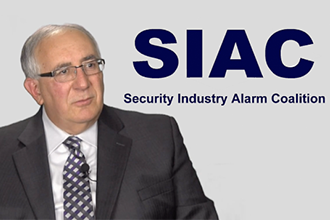The community of Sandy Springs, Georgia, has revoked the registration of 39 of its city alarm companies, due to delinquent payment of fines. The action is in response to the city’s ordinance passed last year that made alarm companies — not residents — liable for repeat false alarms. The registration revocation has impacted many local ESA Member companies, leaving them ineligible to request emergency response. The community of Sandy Springs, Georgia, has revoked the registration of 39 of its city alarm companies, due to delinquent payment of fines. The action is in response to the city’s ordinance passed last year that made alarm companies — not residents — liable for repeat false alarms.
The registration revocation has impacted many local ESA Member companies, leaving them ineligible to request emergency response.
“This is a classic situation in which the industry, along with the Security Industry Alarm Coalition (SIAC) and local alarm associations, has to challenge an ordinance that is completely out-of-line with the best practices we have promoted for decades,” said Stan Martin, Executive Director of SIAC. “The ordinance is based on misinformation about the role alarm systems play in protecting life and property and the best way to deal with the false alarm issue. Failure of the industry to organize and fight this unconstitutional ordinance is a major threat to our industry.”
The Georgia Electronic Life Safety & Systems Association (GELSSA), two alarm companies, and SIAC, have challenged the ordinance in U.S. District Court.
“If the industry allows this type of ordinance to become the norm, it will be faced with huge administrative and legal costs, disputes with customers and a process that does not align with best practices for reducing alarm dispatches,” said Dan Gordon, GELSSA President. “Passing customer fines to alarm companies cannot be an option on the table when discussing alarm management.”
The lawsuit states that alarm companies do not have a relationship with alarm users and are not in a position to supervise, direct or control the actions of their customers. Despite these facts, the ordinance imposes extreme fines on alarm companies. Under the ordinance, the first false alarm is fined at $25; second and third false alarms are $250; fourth or additional false alarms in any 24-month period are $500.
“SIAC is taking the lead in helping the ESA, GELSSA and local companies fight this ordinance,” said Martin. “The city’s own documents indicate that the decision to fine alarm companies is purely political.”
Sandy Springs has never explained why it does not utilize the widely adopted and proven model alarm ordinance, which has a well-documented record of success, or provided any evidence as to why they believe their ordinance will be more effective.
Meanwhile, cities in Arizona, Colorado and Tennessee are considering similar laws that will hold alarm companies financially responsible for “false” alarms.
This federal lawsuit will be expensive, but it is critical to take a legal stand in Sandy Springs, not only for the threat it poses for alarm companies in Georgia, but throughout the country where a similar ordinance could be on the horizon.
“The real losers in this debate are residents and business owners in Sandy Springs who depend on alarm systems to protect life and property,” said Martin. “A $250 or $500 fine is a real burden on an individual or business owner trying to protect their homes or business. Sandy Springs isn’t punishing alarm companies but rather is punishing its own citizens.”
ESA and its GA Chapter, GELSSA, will continue to monitor and respond to the situation to best protect and arm its member companies and the industry. For more on how you can help support SIAC’s legal initiative against Sandy Springs, donate now.
https://siacinc.org/donate.aspx




